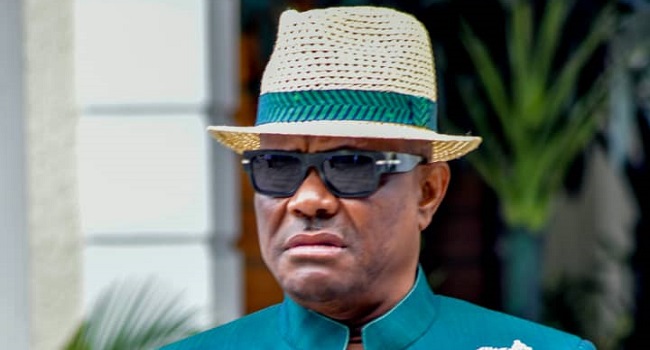Conservative firebrand Jim Jordan has been chosen as Republican nominee to become Speaker of the House.
The Ohio congressman won 124 votes from party members in the secret ballot held on Friday afternoon, with 81 against.
But Mr Jordan, who has the backing of former president Donald Trump, is already facing mounting opposition from the ranks of his own party.
The week ends with Republicans no closer to successfully installing a Speaker amid continued infighting.
The House has now gone 10 days without a Speaker. Until a new candidate is chosen it will be unable to pass any bills, approve White House requests for emergency aid or pass short-term spending motions.
While Mr Jordan emerged victorious from Friday’s secret ballot against Georgia lawmaker Austin Scott, he quickly failed to consolidate support in the wider party.
Immediately following the vote, Republican representatives held a second motion to determine whether members would support him in a floor vote, before breaking up for the weekend.
The second vote saw 55 members vote “no” on Mr Jordan. As things stand, he has no clear path to the Speaker’s office, leaving House Republicans leaderless and wracked by uncertainty.
Several supporters of Steve Scalise – who was nominated as the party’s candidate for Speaker on Wednesday before withdrawing – have vowed to oppose Mr Jordan at all costs.
Mr Jordan only narrowly expanded the fragile margin Mr Scalise earned on Wednesday of 113 votes to 99.
Three ways Republican House Speaker chaos ends on Capitol Hill
Watch: Scalise bows out of Speaker’s race, citing ‘schisms’ What does the US Speaker of the House do?
Among those still opposed to Mr Jordan was Florida’s Mario Díaz-Balart, who told reporters that he faces a “very, very big hurdle” to become Speaker.
“I don’t think he is the one,” Mr Díaz-Balart said. “Ultimately, we’re going to have to have someone who can truly unify us.”
Ahead of Friday’s secret ballot, Mr Jordan expressed confidence, telling reporters that he felt “real good” about the vote.
“I think I can unite the conference,” he said. “I think I can go tell the country what we’re doing and why it matters to them.”
But like Mr Scalise – and ousted Speaker Kevin McCarthy before him – Mr Jordan’s path faces significant challenges.
With the Republicans controlling the House by a very narrow margin, he will need 217 of 221 Republican members to vote for him. He can only afford to lose five votes.
Some of his supporters expressed optimism that over the coming days that Mr Jordan would be able to sway many of those who voted against him.
“I think Jim can get there,” said Florida Representative Brian Mast, adding that the weekend would give him additional time to lobby detractors. “Jim has people to speak to.”
Another Florida Representative, Byron Donalds – who is supporting Mr Jordan – said he was surprised that he lost so many votes to Mr Scott, who only decided on and announced his candidacy earlier on Friday.
“I thought it would be higher,” Mr Donalds said.
When the Speaker vote will head to the House floor remains unclear, but multiple lawmakers said they were leaving for the weekend and that the earliest the vote could take place was Monday 16 October.
“I think we should stay and finish this, but it’s up to him,” Mr Donalds said. “There’s a lot of work that can be done in a short amount of time.”
Speaking before the vote was held on Friday, Mr McCarthy expressed his support for Mr Jordan, saying: “I think Jordan would do a great job.”
The Republican conference is also suffering from attendance issues, with only 209 of 221 members currently in Washington DC. Breaking for the weekend allows missing members to return to the city.
Mr Jordan, a co-founder of the far right Freedom Caucus, is known for his close ties to Mr Trump, especially in the days after the 2020 election when he was contesting the vote result.
Mr Trump awarded him the Medal of Freedom before leaving office.
The Democrats, for their part, will nominate Hakeem Jeffries, but as they are the minority party in the chamber, he stands no chance of getting elected.
In a news conference on the steps of the Capitol after Mr Jordan’s nomination, Mr Jeffries lambasted the Republicans for choosing what he termed the chairman of the “Chaos Caucus” – a reference to Mr Jordan’s role as a leader in the Freedom Caucus.
“House Republicans now have a choice,” he said. “On the one hand, House Republicans continue to triple down on the chaos, the dysfunction and the extremism that has been visited upon the American people.”
“On the other hand, traditional Republicans can break away from the extremism, partner with Democrats on an enlightened bipartisan path forward so we can end the recklessness and get back to doing the business of the American people,” Mr Jeffries said.
The previous Speaker, Kevin McCarthy, was ousted from the job on 4 October after striking a deal with Senate Democrats to fund the government.
Hardline Republicans, led by Florida Congressman Matt Gaetz, invoked a rarely used procedural tool known as a motion to vacate to oust Mr McCarthy.
Although he was the first Speaker in US history to be voted out of the office of speaker, the last two Republican Speakers – John Boehner and Paul Ryan – were also forced to leave after repeated clashes with conservative members.
Credit BBC news













